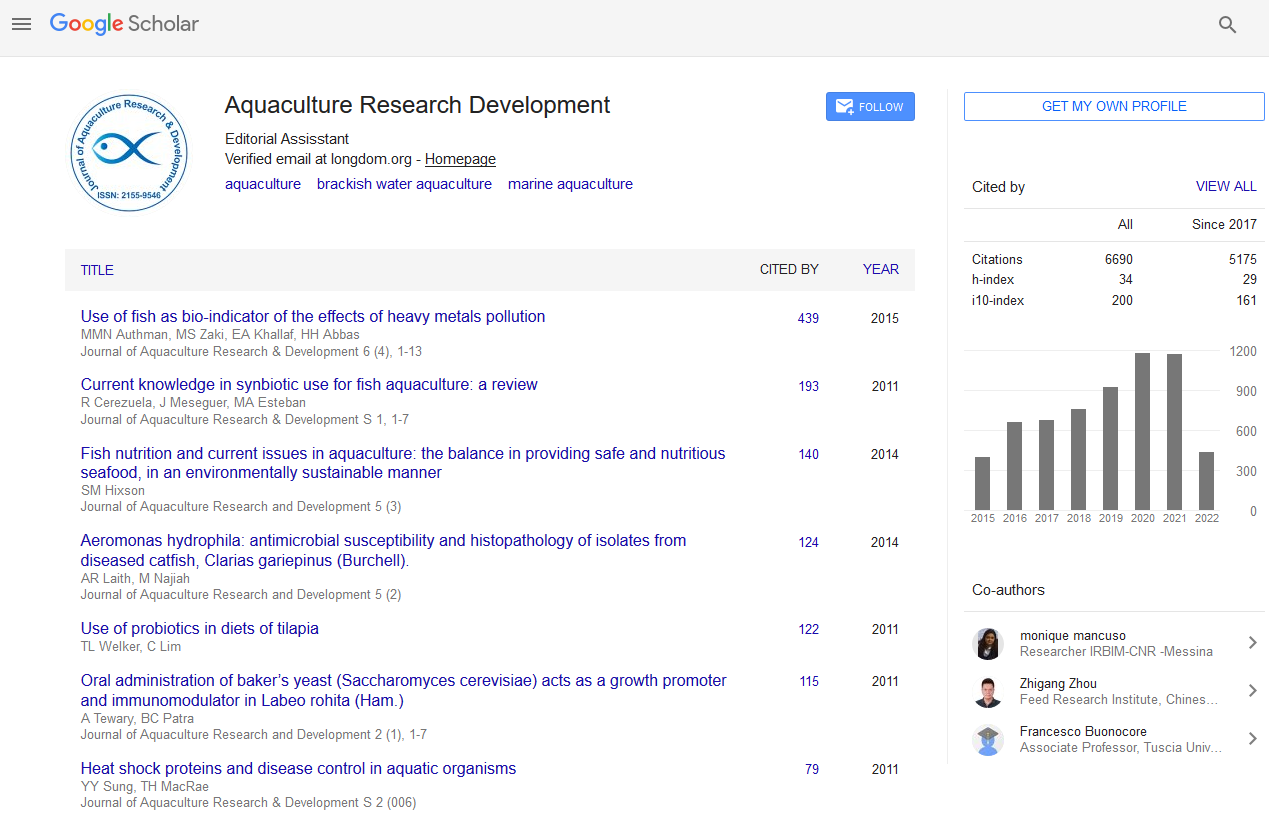PMC/PubMed Indexed Articles
Indexed In
- Online Access to Research in the Environment (OARE)
- Open J Gate
- Genamics JournalSeek
- JournalTOCs
- Scimago
- Ulrich's Periodicals Directory
- Access to Global Online Research in Agriculture (AGORA)
- Electronic Journals Library
- Centre for Agriculture and Biosciences International (CABI)
- RefSeek
- Directory of Research Journal Indexing (DRJI)
- Hamdard University
- EBSCO A-Z
- OCLC- WorldCat
- Scholarsteer
- SWB online catalog
- Virtual Library of Biology (vifabio)
- Publons
- MIAR
- University Grants Commission
- Euro Pub
- Google Scholar
Useful Links
Share This Page
Journal Flyer

Open Access Journals
- Agri and Aquaculture
- Biochemistry
- Bioinformatics & Systems Biology
- Business & Management
- Chemistry
- Clinical Sciences
- Engineering
- Food & Nutrition
- General Science
- Genetics & Molecular Biology
- Immunology & Microbiology
- Medical Sciences
- Neuroscience & Psychology
- Nursing & Health Care
- Pharmaceutical Sciences
The unintended consequences of simplifying the Sea: Making the case for complexity
International Conference on Aquaculture & Fisheries
July 20-22, 2015 Brisbane, Australia
Leigh Michael Howarth
Posters-Accepted Abstracts: J Aquac Res Development
Abstract:
Many over-exploited marine ecosystems worldwide have lost their natural populations of large predatory finfish and have become dominated by crustaceans and other invertebrates. Controversially, some of these simplified ecosystems have gone on to support highly successful invertebrate fisheries capable of generating more economic value than the fisheries they replaced. Such systems have therefore been compared with monocultures created by modern agriculture on land, in that existing ecosystems have been converted into those that maximize the production of target species. It is however, widely recognized that monocultures are ecologically unstable. On land, crops and animals must be treated with a diverse array of chemicals and biological controls to maintain yields in the face of pests, weeds and diseases. Similar methods are also used in aquaculture but in the open sea, no such mechanisms exist. In this study, they explore the consequences of simplifying the sea and whether maintaining low-diversity conditions in the marine environment for our long-term exploitation is viable. By drawing on a number of concepts and case-studies we argue that, in many cases, the loss of large finfish has triggered dramatic ecosystem shifts to states that are both ecologically and economically undesirable and difficult and expensive to reverse. In addition, we find that those stocks left remaining are unusually prone to collapse from disease, invasion, eutrophication and climate change. We therefore conclude that the transition from multispecies fisheries to simplified invertebrate fisheries is causing a global decline in biodiversity and is threatening global food security, rather than promoting it.


